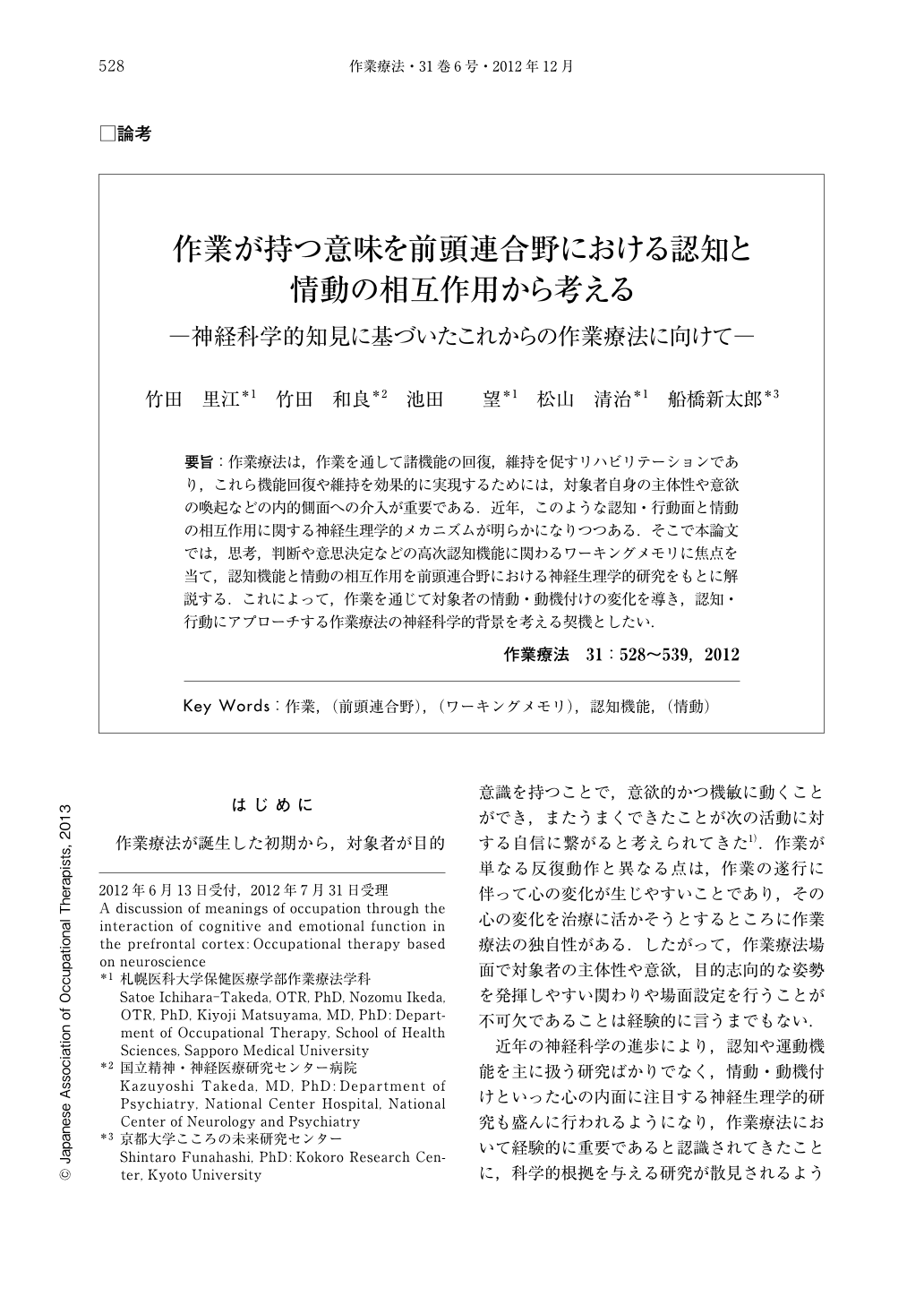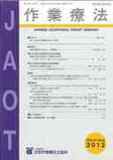Japanese
English
- 販売していません
- Abstract 文献概要
- 1ページ目 Look Inside
- 参考文献 Reference
- サイト内被引用 Cited by
要旨:作業療法は,作業を通して諸機能の回復,維持を促すリハビリテーションであり,これら機能回復や維持を効果的に実現するためには,対象者自身の主体性や意欲の喚起などの内的側面への介入が重要である.近年,このような認知・行動面と情動の相互作用に関する神経生理学的メカニズムが明らかになりつつある.そこで本論文では,思考,判断や意思決定などの高次認知機能に関わるワーキングメモリに焦点を当て,認知機能と情動の相互作用を前頭連合野における神経生理学的研究をもとに解説する.これによって,作業を通じて対象者の情動・動機付けの変化を導き,認知・行動にアプローチする作業療法の神経科学的背景を考える契機としたい.
Occupational therapy has promoted not only recovery of physical functions, but also patients' autonomy and motivation. Recent studies have shown interaction between cognitive and emotional functions through neural bases. These studies suggest the therapeutic efficacy of occupation. The present paper reviewed our studies of the effects of emotion on working memory mechanisms, and discussed both the neurophysiological underpinnings of occupational therapy such as the cognition and behavior, and respecting the patients' autonomy and motivation.

Copyright © 2012, Japanese Association of Occupational Therapists. All rights reserved.


